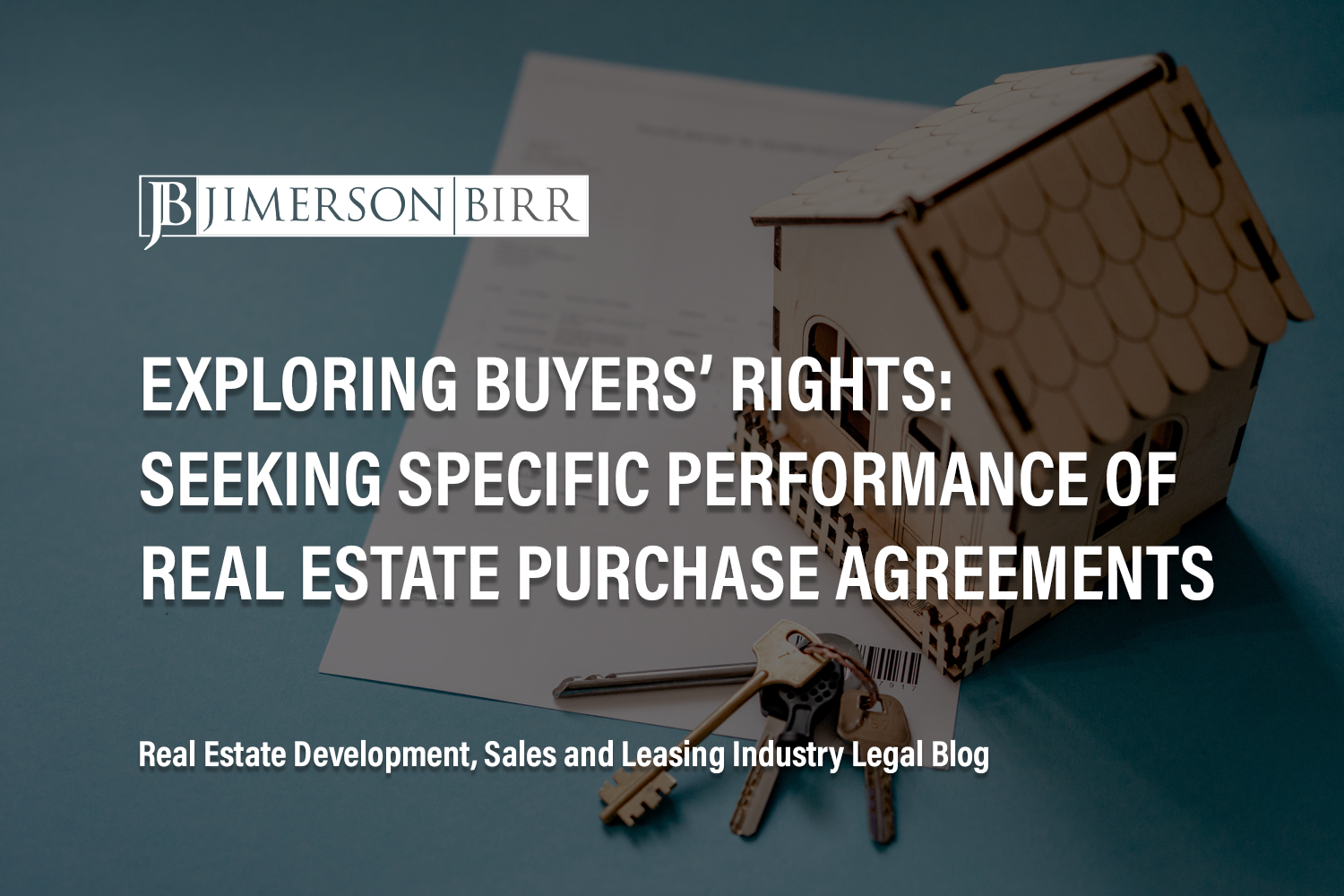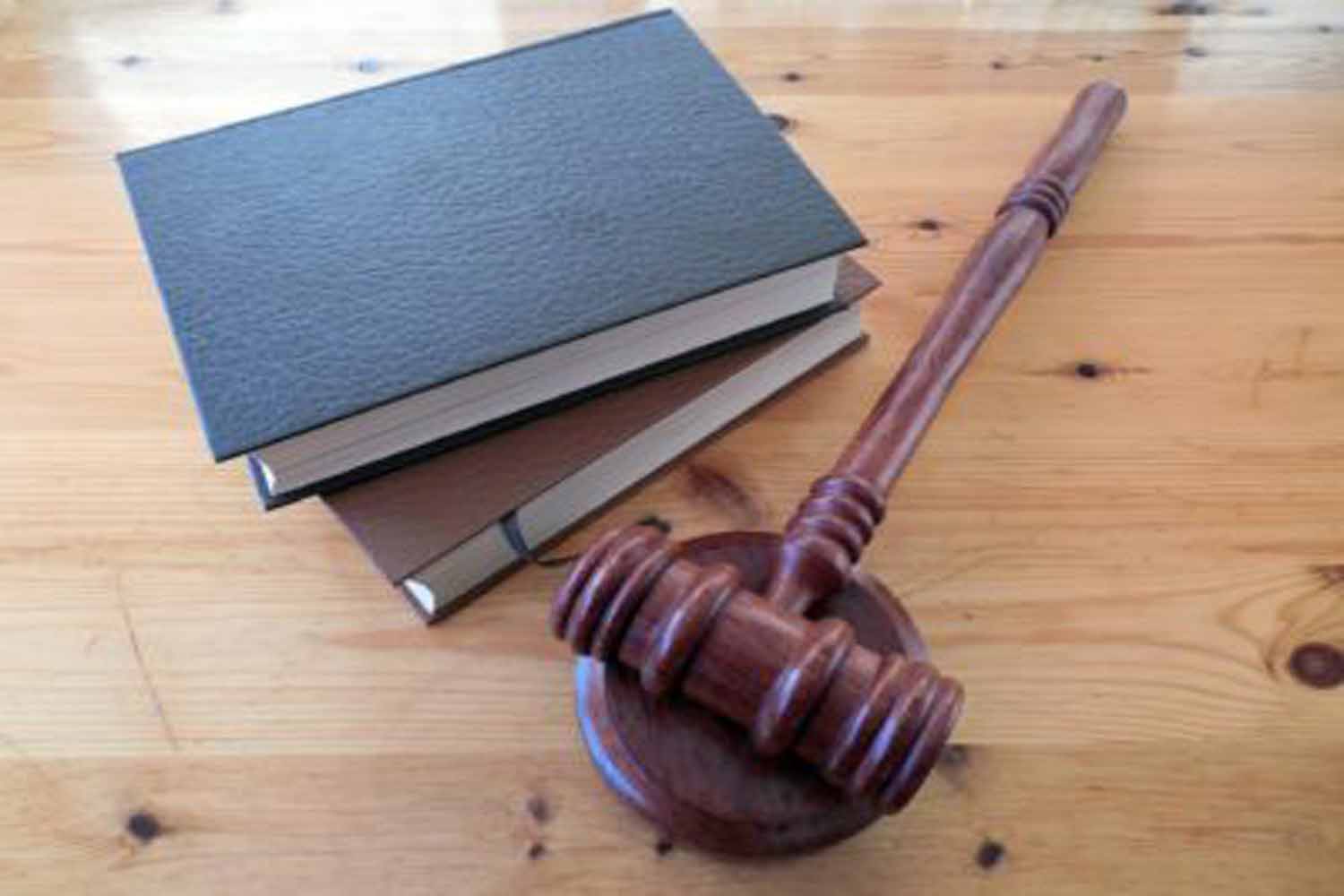
Empower buyers’ rights with specific performance of real estate contracts for effective transaction enforcement and overcoming seller refusals. Gain legal expertise in Florida’s real estate scene.


Empower buyers’ rights with specific performance of real estate contracts for effective transaction enforcement and overcoming seller refusals. Gain legal expertise in Florida’s real estate scene.

In 2014 the Florida Condominium Act (the “Act”) was amended to make it easier for Condominium Associations to recover past-due assessments from third-party purchasers at a mortgage foreclosure sale. The longstanding Florida law is that a condo unit owner is jointly and severally liable with the prior unit owner for […]

This blog post is part IV in a series of posts providing an overview of important considerations for commercial lease agreements. Regardless of whether a landlord or tenant, there are numerous issues that all parties should consider prior to entering into a commercial lease agreement. Part I addressed mandatory and suggested commercial lease agreement terms and the legal duties and obligations of the parties involved. Part II discussed the enforceability of certain lease agreements, tort liability for both landlords and tenants, and the use of personal guarantees. Part III focused on the tenant’s remedies, claims and defenses when a landlord breaches the commercial lease agreement. This fourth and final post in this series will discuss the landlord’s remedies, claims and defenses for breaches by the tenant.

This blog post is part III in a series of posts providing an overview of important considerations for commercial lease agreements. Regardless of whether a landlord or tenant, there are numerous issues that all parties should consider prior to entering into a commercial lease agreement. Part I addressed mandatory and suggested commercial lease agreement terms and the legal duties and obligations of the parties involved. Part II discussed the enforceability of certain lease agreements, tort liability for both landlords and tenants, and the use of personal guarantees. Part III will focus on a tenant’s remedies, claims and defenses when a landlord breaches a commercial lease agreement.

This blog post is part II in a series of posts providing an overview of important considerations for commercial real estate lease agreements. Regardless of whether a landlord or tenant, there are numerous issues that all parties should consider prior to entering into a commercial lease agreement. Part I addressed mandatory and suggested commercial real estate lease agreement terms and the legal duties and obligations of the parties involved. Part II will discuss the enforceability of certain lease agreements, tort liability for both landlords and tenants, and the use of personal guarantees.

Parties must consider numerous issues when entering into commercial lease agreements. Such considerations encompass everything from the express and implied duties of each respective party to the remedies afforded to each party in the event of a breach. This blog post is Part I in a series of posts providing an overview of important considerations for commercial lease agreements. Part I discusses mandatory and suggested commercial lease agreement terms and the legal duties and obligations of the parties involved.

In Florida, recovery of attorneys’ fees in eminent domain and inverse condemnation proceedings is governed by Sections 73.091 and 73.092 of the Florida Statutes. Section 73.092 provides a mechanism for determining an award of attorney fees, based on the “benefits achieved for the client.” But, what if the state agency/condemning authority excessively litigated the case, such that the formulaic computation under that statute was unfair to the property owner? A recent Florida Supreme Court case addressed this issue. Joseph B. Doerr Trust v. Central Florida Expressway Authority.